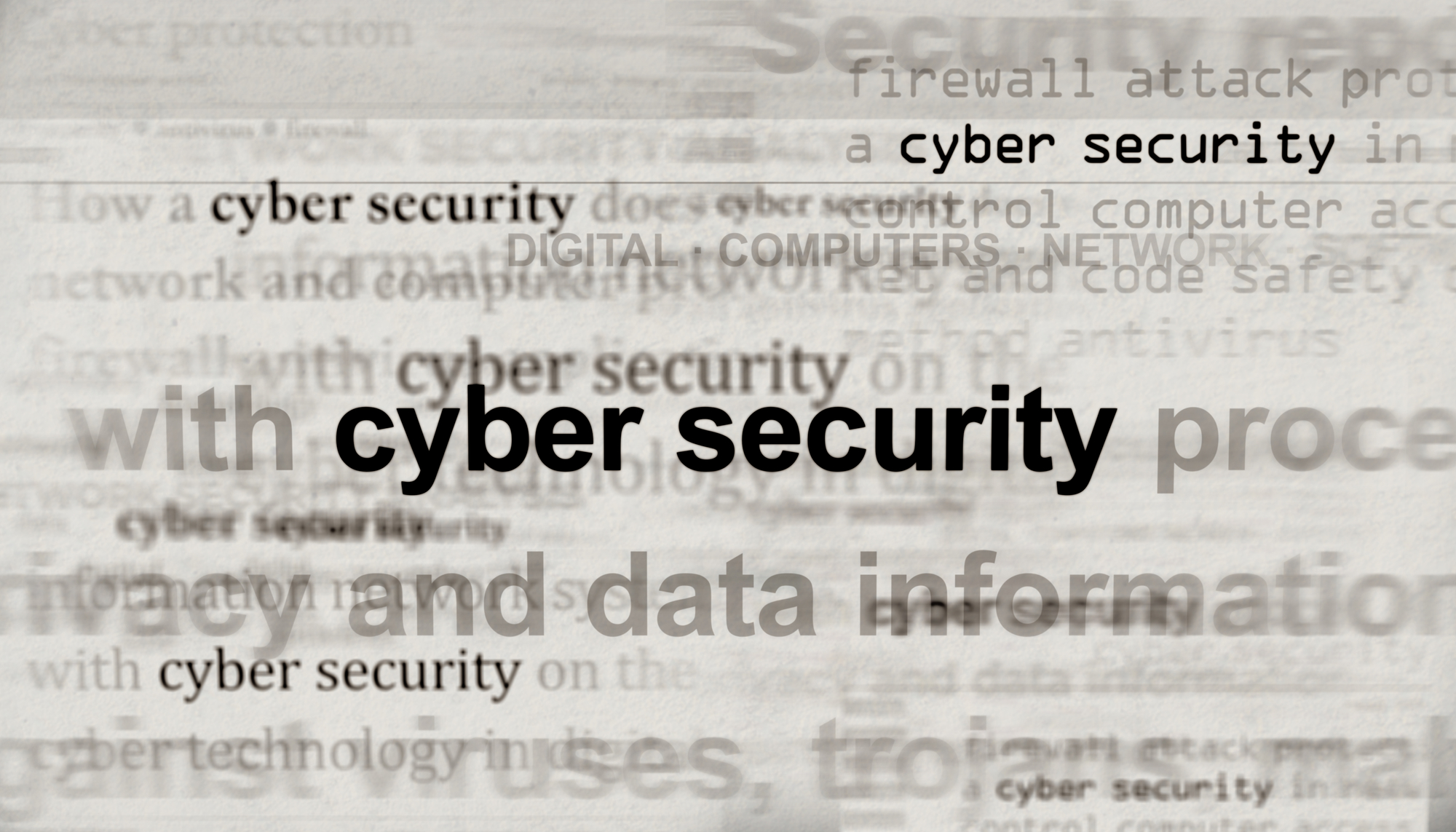Cybersecurity has become one of the most critical issues facing businesses today. As organizations increasingly rely on technology to conduct operations and store sensitive data, they become more vulnerable to cyber threats like hacking, malware, and data breaches. Recent statistics show that a business falls victim to a ransomware attack every 14 seconds, and the average cost of a data breach now exceeds $4 million. For small and mid-sized companies, especially, a successful cyber attack could mean the end of the business.
In this comprehensive guide, we will explain everything you need to know about cybersecurity and why it matters more than ever for organizations of all sizes. You will learn key topics like what cybersecurity entails, major threats like phishing and denial of service attacks, and the components of a robust cybersecurity program. We will also cover the substantial financial, reputational, and operational damages that can result when cybersecurity is not prioritized. Most importantly, you will understand why actively managing cyber risk is not just an IT issue but a critical strategic imperative across every part of your business.
Equipped with the knowledge and best practices provided in this piece, you will be well-prepared to make smart investments in cybersecurity that match your risk profile and safeguard your most precious assets – your data, infrastructure, and reputation. The time is now for every organization to understand the cybersecurity challenge and take meaningful action.
What is Cybersecurity?
Cybersecurity refers to the practices, tools, and technologies used to protect computer systems, networks, programs, and data from unauthorized access or attack. The main goals of cybersecurity are to ensure the confidentiality, integrity, and availability of information systems. In other words, cybersecurity aims to prevent unauthorized users from accessing, changing, or destroying sensitive information while ensuring authorized users can readily access the information they need.
At its core, cybersecurity works by implementing various controls or safeguards that protect against threats like malware, hacking, and data leaks. Some common protections include firewalls that control network traffic, antivirus software that scans for malicious code, and encryption that scrambles data so only authorized parties can read it. Multi-factor authentication, which requires users to provide multiple credentials like passwords and fingerprint scans, is another control that strengthens system security.
Robust cybersecurity also entails comprehensive policies and procedures governing how data is handled, and systems are accessed. Companies establish guidelines like requiring strong passwords, not clicking on suspicious links, and reporting suspected incidents. Ongoing training helps ensure employees at all levels understand their security responsibilities. Dedicated cybersecurity staff like Chief Information Security Officers (CISOs) oversee and manage protections across the organization.
While related, cybersecurity differs from information security in some key ways. Information security is a broader field focused on safeguarding all types of data and information assets, whether physically or digitally. Cybersecurity protects electronic data, networks, computers, and IT infrastructure from intrusions. It emerged as a distinct discipline as more information and assets moved online, requiring dedicated technical expertise and solutions for the digital realm.
Nearly every organization relies on cybersecurity to avoid disruptive and costly breaches in today’s interconnected world. Implementing comprehensive protections requires constant vigilance, risk assessment, employee training, and adoption of the latest security tools and best practices. Cybersecurity allows companies to leverage technology securely and confidently.
Why is Cybersecurity Important?
Cybersecurity is critically important for businesses and organizations because of the immense risks and potential damages of cyber attacks, which are growing more common and sophisticated every year. Some key reasons robust cybersecurity measures are an absolute necessity today include:
- Financial losses – A successful breach can result in massive costs from data and productivity losses, recovery efforts, legal liabilities, and reputational harm. The average cost of a data breach is now over $4 million. Ransomware attacks alone cost businesses $20 billion annually. Small businesses often need help to absorb such losses.
- Reputational harm – Data breaches that expose customer or patient information severely damage trust in a brand. Equifax saw a 24% drop in profits following its 2017 breach. Target’s brand perception fell by over 30% after hackers stole payment data for 70 million customers in 2013.
- Intellectual property theft – Hackers routinely target trade secrets and proprietary data to gain a competitive advantage. The Commission on the Theft of American Intellectual Property estimates losses from IP theft at $600 billion annually. Startups with valuable research and tech assets are prime targets.
- Business disruption – Malware and denial of service attacks disrupt operations and productivity. The WannaCry ransomware 2017 put the UK’s National Health Service at a standstill. Average downtime from ransomware now exceeds 21 days, crippling business functions.
- Compliance mandates – Industries like finance and healthcare face strict security regulations with heavy penalties for non-compliance. Failing to protect sensitive customer data can result in sizable fines.
- National security – Critical infrastructure sectors like energy, transportation, and manufacturing are vulnerable to large-scale cyber attacks by hostile nation-states and bad actors. This poses economic and public safety risks.
Given these threats, all organizations must make cybersecurity a top strategic business priority. Robust defenses mitigate risks and help avoid costly breaches jeopardizing finances, customer trust, intellectual property, business continuity, and national security. Cybersecurity is essential for organizational resilience and survival in today’s digital landscape. No enterprise can neglect this critical function and responsibility in the modern, interconnected world.

Cybersecurity Threats and Risks
Organizations face diverse cybersecurity threats that can disrupt operations, steal data, and cause major financial and reputational damage. Some of the most common and dangerous threats include:
- Malware – Malicious software like viruses, worms, and trojans infect systems and perform harmful activities like deleting files or encrypting data in ransomware schemes. Malware often spreads through phishing emails or infected websites.
- Phishing and social engineering – Cybercriminals use phishing emails or fraudulent social media posts to trick users into revealing passwords and sensitive data. It exploits human psychology rather than software vulnerabilities.
- Denial-of-service (DoS) attacks – DoS attacks overwhelm systems and networks with bogus traffic to take them offline. Distributed denial-of-service (DDoS) attacks leverage thousands of compromised devices to intensify the onslaught.
- Data breaches – External hackers and malicious insiders can exfiltrate sensitive customer, employee, or proprietary data for theft or public exposure. Most breaches occur due to inadequate access controls.
- Insider threats – Employees, contractors, or partners with authorized access can intentionally or accidentally expose data, install malware, or abuse their privileges.
- Unsecured IoT devices – Billions of insecure Internet of Things (IoT) devices like smart cameras can be compromised to enable DDoS attacks or serve as entry points into networks.
- Third-party vendors – Vendors with network or data access can expose partner organizations if their defenses are lacking. Their risks must be managed.
- Web app vulnerabilities – Websites and web apps are common targets for exploits like cross-site scripting, SQL injection, and other code-based attacks.
These threats all have different attack vectors, motivations, and consequences. But they underscore why a layered “defense-in-depth” approach is critical, with controls like firewalls, access management, employee training, and vendor oversight working to mitigate risks. Cybersecurity requires constant vigilance across the entire attack surface.
Elements of a Cybersecurity Program
An effective cybersecurity program requires many interlocking parts to protect the organization. While specific components will vary by company, some essential elements include:
- Leadership and governance – Cybersecurity must be championed from the top down with engaged leadership, clear policies, governance frameworks for risk management, and well-defined roles and responsibilities.
- Policies and compliance – Documented cybersecurity policies establish standards of behavior for employees and vendors. Staying compliant with industry and government regulations is also critical.
- Employee training – Ongoing cybersecurity awareness training for all staff is key to building a human firewall. Training helps employees recognize threats like phishing and avoid mistakes.
- Physical and data security – Data centers, servers, and sensitive documents need physical access controls. Data security measures like encryption and access management maintain the confidentiality and integrity of critical assets.
- Network protections – Firewalls, intrusion detection/prevention systems, and VPNs safeguard the perimeter and internal network segments. Keeping software patched and updated is also key.
- Endpoint security – Antivirus, anti-malware tools, and disk encryption secure laptops, desktops, mobile devices, servers, and USB drives as the last line of defense.
- Access controls – Role-based access limits privileges to systems and data on a need-to-know basis. Multi-factor authentication adds extra identity verification.
- Incident response – An incident response plan lets teams rapidly detect, analyze, and contain breaches or cyber-attacks to minimize damage.
- Vendor risk management – Third-party vendors with network/data access must meet minimum security standards through risk assessments and contract terms.
With strong technical controls, policies, training, leadership, and oversight, organizations can build a robust cybersecurity program that addresses their unique risks. Monitoring, testing, and adaptation are needed to keep pace with an evolving threat landscape.

Benefits of Strong Cybersecurity
Investing in robust cybersecurity measures pays dividends across the entire business. Benefits of good cyber hygiene include:
- Protecting customer and employee data – Stringent controls like encryption and access management keep sensitive information safe from compromise, preventing loss of customer trust and legal/regulatory problems.
- Avoiding costs of breaches – A solid security posture minimizes the risks and potential costs of cyber attacks that could cripple operations and the bottom line.
- Maintaining business operations – Keeping critical systems available and malware-free through strong network and endpoint security ensures minimal disruption to productivity and revenue.
- Safeguarding reputation – Cybersecurity preserves customer loyalty and company value by preventing breaches that erode consumer confidence and damage brand reputation.
- Gaining competitive advantage – Companies known for good data stewardship and security attract more customers and talent, boosting market share.
In today’s threat landscape, cybersecurity is a business necessity rather than an option. An investment in robust defenses reduces risk and provides return through cost savings, resiliency, trust, and market growth. It is fundamental to achieving larger strategic goals and enabling the safe use of technology.
Conclusion
Cybersecurity is mission-critical today, given rising threats jeopardizing finances, data, trust, and operations. Key takeaways include:
- Cyber attacks are surging, requiring vigilant security.
- Breaches bring massive costs from damage and recovery.
- Malware, phishing, DDoS, and more threaten networks and data daily.
- Robust cybersecurity reduces risks and enables digital transformation.
- A multi-layered program addresses policies, access, training, vendors, and technical controls.
- Prioritizing cybersecurity brings resiliency and a competitive edge. Companies can tackle the cybersecurity challenge with proper strategy, controls, and expertise.
Don’t Leave Your Business Vulnerable – Contact ZZ Servers Today for Cybersecurity Solutions
Cyber threats only continue to grow, but with ZZ Servers as your partner, your Virginia business can implement robust protections tailored to your unique needs and risk profile.
With over 17 years of experience providing IT services and cybersecurity to companies like yours, ZZ Servers has the expertise to secure your data, systems, and operations. Our offerings include:
- Cybersecurity assessments to identify vulnerabilities
- Installation of critical controls like firewalls and endpoint protection
- Ongoing monitoring and management of your defenses
- Incident response planning and testing
- Employee cybersecurity training
- Compliance with regulations like HIPAA and PCI DSS
- CISO advisory services
Don’t wait until it’s too late – a data breach could cripple your business. Contact ZZ Servers today at 800-796-3574 for a free consultation with our cybersecurity professionals. Let us help your organization manage risk, meet compliance mandates, and make smart technology decisions. Your data and reputation are too valuable not to protect.
Frequently Asked Questions
What are some key cybersecurity regulations and laws?
Government regulations like HIPAA, PCI DSS, and GDPR establish cybersecurity rules that companies in certain industries must follow. Adhering to these laws and compliance mandates ensures organizations implement essential data protections and avoid steep fines for violations.
How can businesses ensure continuity during a cyber attack?
Incident response planning and business continuity management help companies quickly detect attacks, minimize damage, restore critical systems, and enable ongoing operations. Steps like system backups, alternate processing sites, and emergency communications plans promote continuity.
What cybersecurity controls do small businesses need?
Smaller companies should implement security controls like multi-factor authentication, endpoint protection, firewalls, access management, and data encryption. Safeguards should match the business size and risk profile.
How does cybersecurity readiness reduce risk?
Proactive readiness through vulnerability assessments, penetration testing, and employee training identifies weaknesses and improves preparedness to handle real attacks. Readiness reduces the chances of disruption.
What role does vendor risk management play in cybersecurity?
Assessing third-party vendor security practices through audits and due diligence ensures they don’t expose the organization to breaches. Vendor oversight is key for risk management.


